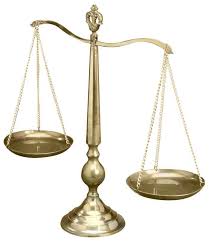I'm posing two questions for this post: What is the distinction between nepotism and affirmative action, and is there any justice in affirmative action? 
Professor George Lakoff provided two distinctly different views of affirmative action in his book Moral Politics. The typical conservative view: Any policy that gives people things they haven't earned is seen as immoral, because it lessens the incentive to be self-disciplined. Then a more liberal interpretation: ...it is the responsibility of the government to guarantee fair treatment of people who have been subject to discrimination- women, nonwhites, and ethnic minorities.
I view nepotism as affirmative action for the well connected. It's easier to see nepotism in small towns where the direct connections to opportunity are right in front of you, but in larger communities seeing the helping hand some receive through family ties isn't as obvious. Whereas, being a minority in a top position anywhere leaves you open to the speculation of receiving a handout.This distinction matters because of the stigma associated with affirmative action is so damning.
In order to give this topic a fair treatment we have to look past the superficial ideas associated with affirmative action. Mainly, this false narrative that says people who benefit from it aren't qualified for the positions they hold. The majority of the time it's the opportunity that's in scarce demand not the talent. Many recipients of these hand ups are people who have spent the time to educate themselves and cultivate the skills necessary to succeed. Affirmative action negates some of the disadvantages associated with not having direct connections to opportunity.
While women and minority groups benefit from affirmative action there's a class of white males who find themselves on the outside of opportunity looking in. They aren't well connected, they work hard, and they see a world in which they are being pushed to the sides. They are starting to believe the American dream is something their parents and grandparents lived. For these people, I understand how affirmative action is anathema. The deindustralization of America has hit the bible belt and Midwest hard. Faced with the rise of immigration and the loss of jobs it's easy to understand the arguments against programs that help people who don't look like you.
If you look at the data you would see that women, not people of color, benefit most from affirmative action, yet black and brown people are the targets of the angst felt by those who seek to dismantle affirmative action. I guess It's easier to kick the ladder from under racial minorities than it is your own daughters.
To the question of justice, I think anytime you provide opportunity to disenfranchised people you're doing something noble, but that comes with consequence of alienating those left out. It would be hard to deny the fact that race plays a role in hiring practices. I'd like to believe that employers would do the right thing without being told to, but that isn't always the case. The historical plight of minorities in America is a painful and controversial topic for some, but that pain is minute compared to the psychological scars associated with being on the wrong side of oppression.
I don't know how you mend the hurt feelings associated with being on the outside looking in. There are significant questions associated with leveling the proverbial playing field. If I could convey one point, it would be that there are people in this society who look at people of color and women and will not take them seriously; no matter what their qualifications and credentials are, they are viewed as less than adequate. Knowing you are competent, but not being taken seriously is a kind of hell on earth. It's these people who need affirmative action.
While less people benefit from nepotism than affirmative action, the lack of conversation about this advantage is missing from any conversation about equity in the workplace. The legacy admission policy used by prestigious universities is no different than allowing students preference from historically impoverished communities. There's a level of intellectual honesty needed to further discussions about topics so sensitive. As for justice: we all know she is blind.